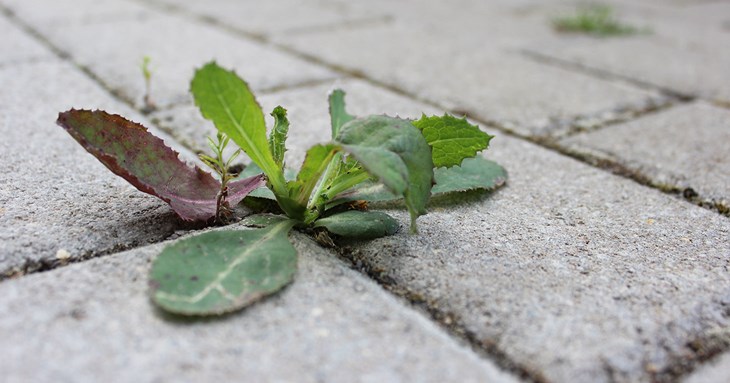Routine weed spraying of the highways in Exeter is set to end in the city
Published: 23 March 2023

Exeter is to stop spraying glyphosate as a weed killer on the city’s highways.
Devon County Council currently contracts Exeter City Council to carry out two weed killer sprays a year.
But that contract is coming to an end and glyphosate will only be used when absolutely necessary, for example when dealing with highly invasive and damaging weeds.
Concerns about the potential effects of glyphosate on health and the environment have previously been raised by the City and County Council.
Following a public engagement and budget consultation programme carried out in 2015/16, the County Council moved from a cyclical programme of weed treatment using glyphosate to alternative means of supressing weeds on its highways and land across Devon.
In 2019 a motion calling for a trial of alternative methods of weed suppression and management was unanimously backed by city councillors.
The motion said that there was “increasing evidence of the dangers to both human health and biodiversity of continuing use of glyphosate weed killer.”
It concluded: “This council has a duty of care to its citizens and staff and the use of glyphosate has a detrimental effect on biodiversity and the environment in general.”
Cllr Duncan Wood, Lead Councillor for Climate Change, said: “We have been concerned about the use of glyphosate for some time and the city council has previously pledged to reduce usage.
“Protecting biodiversity is extremely important in Exeter. We work very hard to protect the environment and support biodiversity in our parkland and Valley Parks.
“Indeed, we are currently working with Devon Wildlife Trust to create a whole new wildlife haven in Northbrook Park. Clearly it is essential that we deliver on our promise to dramatically reduce the use of glysophate across the city and resulting threat to the environment.
“There is a growing understanding that all wild flowers contribute to biodiversity and help pollinating insects, and that simply spraying a herbicide over large parts of the city is no longer acceptable.”
The move to end weed spraying with glyphosate has been welcomed by Devon Wildlife Trust. Emily Spraggon, Nature Recovery Officer at DWT, said: “41% of insect species face extinction which will have major repercussions for human food production and our wider wildlife.
“Herbicides and pesticides are a big part of this problem as they reduce food supply for insects and have damaging impacts on insect health. They also impact our water ways and soils. The reduction of glyphosate use in Exeter is a fantastic step forward for urban wildlife and residents alike.”
Devon County Council says that although the routine treatment of weeds twice a year on roads and paths will stop, weeds will continue to be treated as part of highway maintenance work to prevent damage to the structure or surface of roads and paths and drainage systems.
Any queries about weed control on the city’s highways should be directed to Devon County Council, which is the highways authority.
